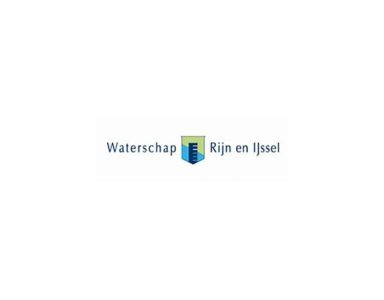Water Technology
Netherlands waterland. Ground and surface water are important as a source for drinking water, agriculture and industry, but are also vital for nature and biodiversity. However, the quality of ground and surface water is under pressure, partly due to climate change. To protect and manage our precious water resources water technology is essential. Water technology consists of all methods, innovations and systems used for the purpose of dealing with water resources in a sustainable way. These include water treatment (through biological and chemical processes, desalination etc.) but also water monitoring.
The Netherlands has traditionally played a major role in the development of water technology. Hezelburcht is an expert in subsidy schemes for various components of water technology. We list the main four components.
Wastewater Treatment
The wastewater sector consists of organisations responsible for the water chain, such as water boards, knowledge brokers like STOWA and RIONED, public authorities like municipalities, knowledge institutions and technology suppliers. In the sector, (surface) water management and water treatment in relation to sustainability goals are the central themes.
Themes in wastewater treatment
The water chain is rapidly changing. It is expected that the water chain will look completely different in 30 years’ time, due to the societal challenges of:
- water quality (including organic micropollutants)
- sustainability (including resource reuse and energy management)
- public health
This leads to the following focus areas:
- Profound and efficient water treatment for public health and water quality. The content of the legal tasks has not changed, the way it is fulfilled has ( more focus on N, P, PFAS, other organic micro-pollutants).
- Recovery is central. Water boards and municipalities engage in activities to recover raw materials and energy. Examples are:
- replacing the use of fossil raw materials for chemicals, transport, heat and electricity with sustainable alternatives
- recovery of raw materials from wastewater
- energy generation from surface water.
- Strategic partnership: Water boards and municipalities work strategically with a number of other parties. This can be on a permanent or temporary basis. Examples include cooperation with research institutes, developers of wastewater engineering and technology, energy companies, housing corporations and waste companies. Water boards develop new products, services and technologies together with these partners.
Relevant grant schemes in the field of wastewater treatment are:
- LIFE, Interreg – pilot and demonstration projects
- Horizon Europe – scientific research
- TSE DEI+ – experimental development and demonstration
- Topsector Energie – other schemes for cooperation between companies with possibly research institutions and/or universities
- MIT – cooperation between companies and research institutes
- WBSO – research and development
- Provincial schemes
Drinking Water Production
The drinking water industry consists of many players. These include water companies, technology companies, water laboratories, engineering firms, universities and research institutes. Each player has its own role.
Drinking water production is done by water utilities. Technology companies provide knowledge and technology. They provide, for example, techniques for water treatment, pipe construction. laboratory analysis, measurements, sensors and inspections. Engineering firms conduct studies on specialised subjects, provide advice and design large-scale projects. Universities and research institutes conduct research on various topics.
Themes in the drinking water production
Key developments in the sector include:
- Development of extensive water treatment technologies
- Process optimisation through integrated modelling and control of water production and distribution
- Reuse of residues
- Replacement of water supply systems
- Early warning systems for water intake
- Innovative laboratory techniques for the detection of emerging substances
- Innovative inspection techniques and decision support systems for water supply systems
- Protection of water catchment areas
Relevant grant schemes for the drinking water production sector:
- WBSO – research and development
- NWO – TTW – scientific research
- EFRO – cooperation between companies and research institutes
- MIT – cooperation between companies and research institutes
- LIFE – pilot and demonstration projects
- Horizon Europe – scientific research
- Innovatiekrediet – for its own research and development
International (water) schemes
Policymakers mainly encourage collaborative projects, sometimes for multidisciplinarity, sometimes for private-public collaborations. The sustainability of activities according to the five criteria (financial, institutional, environmental, technical and social) is central.
Promoting private investment in developing countries becomes more important as the investment challenge can no longer be financed by the international financial institutions.
Relevant grant schemes:
- Urbanising Delta’s of the World (NWO – WOTRO)
- Partners voor Water / Working with water worldwide
- Developmentally Relevant Infrastructure Investment Vehicle (DRIVE)
- Demonstration projects, feasibility studies and investment preparation (DHI)
- Embassy funds
Project examples based on international water schemes
- Reduced flood probability and impact in Alexandria, Egypt (Fonds Duurzaam Water)
- Safe drinking water in Bangladesh: an integrated framework assessing acceptability, social-technological feasibility and sustainability fo hand-pump subsurface arsenic removal in diverse settings of rual Bangladesh (NWO/WOTRO)
- DELTAP: en integrative approach for smart small-scale piped water supply in the Ganges-Brahmaputra-Meghna Delta (Urbanising Deltas of the World Programme)
- Sustainable freshwater supply in urbanizing Maputo, Mozambique (Urbanising Deltas of the World Programme)
- Capacity building in Drinking Water Supply in Suriname (10th European Development Fund ACP – EU Water Facility)
- Capacity Building in Sustainable Water Infrastructure Management in Mozambique Northern Region (10th European Development Fund ACP-EU Water Facility)
- Partnership for capacity building in sustainable infrastructure development and water resources protection in Oromia region, Ethiopia (10th European Development Fund ACP-EU Water Facility)
- Source to Tap and Back, Ethiopia (Fonds Duurzaam Water)
- Mozambique, Sustainable Water Services Beira (Fonds Duurzaam Water)
- Kenya, Performance Enhancement of Water utilities in Kenya through benchmarking, collective learning and innovative financing (Fonds Duurzaam Water)
- Filippijnen, Sustainable and resilient pro-poor water supply, Cebu (Fonds Duurzaam Water)
- Duurzame watervoorziening in Harar, Ethiopië (Fonds Duurzaam Water)
- Towards Pro-Poor Private Investments in water supply in Kota Bandung, Indonesia (Fonds Duurzaam Water)
Water management, nature management and biodiversity
De sector waterbeheer, natuurbeheer en biodiversiteit omvat organisaties die verantwoordelijk zijn voor het beheer van (oppervlakte)water, natuurbeheer en biodiversiteit. Belangrijke organisaties zijn Rijkswaterstaat en Staatsbosbeheer, waterschappen, drinkwaterbedrijven, natuurbeheerders, STOWA als kennismakelaar, overige overheden (met name provincies en gemeenten), kennisinstellingen en technologieleveranciers.
Themes in water management, nature management and biodiversity
European legislation imposes increasingly stringent requirements on water quality. In addition, agreements have been made to preserve and restore biodiversity and natural values. It is necessary to take measures against the negative effects of climate change (climate adaptation). This involves both a temporary excess of water (due to increasingly extreme precipitation) and a shortage of water resulting in salinisation and desiccation. The challenge is to move from a sectoral to an integrated approach, incorporating all aspects.
There is also an increasing focus on ecosystem services from an EU perspective. This involves looking at the role that the natural functions of nature and biodiversity play in human well-being. So a holistic approach, bringing together human values and needs, nature management, protection and conservation.
To meet these challenges, a number of relevant developments are important:
- Good surface water quality: Wastewater is treated efficiently to achieve good water quality. Innovations play a major role here (see also Wastewater treatment). In addition, measures are taken to keep surface water healthy. These include blue-green algae control, the removal of invasive vegetation (large water pennywort) and the construction of nature-friendly banks.
- Effective dykes to keep water in. In the Netherlands, new frameworks and standards have been established with which dikes must comply. The starting point is the multi-layer safety model, focusing on prevention (sufficiently robust dikes), spatial planning (what is allowed and possible in an area) and risk management (before, during and after a disaster). Innovative developments in dike construction (including nature-based solutions), monitoring and risk management play an important role.
- Strategische samenwerking: Water boards work strategically with a number of other parties. This can be on a permanent or temporary basis. For example, cooperation with specialised companies in hydraulic engineering, developers and suppliers of sensor technology and government bodies. Together with these partners, water boards develop new products, services and technologies in order to keep water issues manageable and affordable..
- Biodiversity: Protecting and restoring biodiversity is a priority, both at national and European level. This could include protecting vulnerable natural areas (e.g. within the European Natura 2000 network), as well as plant and animal species that are vulnerable or endangered. Ecosystem services thereby emphasise the importance of biodiversity for human well-being, but projects in which the intrinsic value of nature is paramount also play a role. Various possibilities also exist for consortia in which different parties combine their priorities. Consider combining, for example, climate adaptation, nature management and increasing biodiversity.
Relevante subsidieregelingen:











